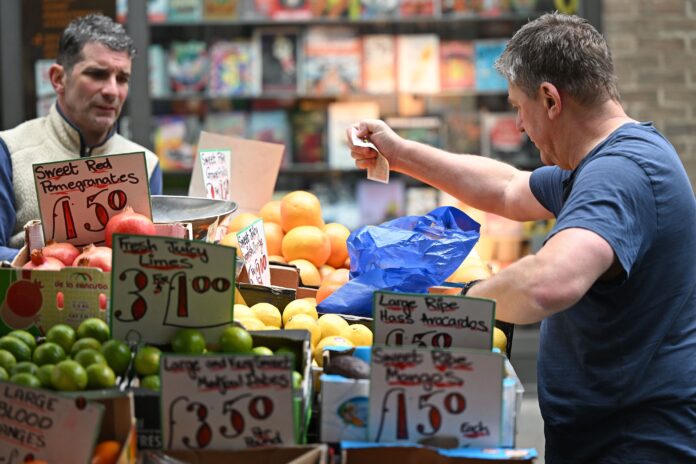Interest rates have jumped by their biggest margin in 27 years as the Bank of England tries to bring inflation under control.
Rates now stand at 1.75% as the bank forecast that inflation would peak at a staggering 13%
It also predicts a recession starting this year lasting as long as the financial financial crisis which lasted fifteen months and to be as deep as the early 1990s
The Bank of England also predicts inflation will still now be above 9% in a year’s time while average pay settlements are indicated to be around 6%
Labour Shadow Chancellor Rachel Reeves says that the Conservatives have lost control of the economy
Chief Economist at the Joseph Rowntree Foundation, Rebecca McDonald, said:
“Staggeringly high inflation is going to hit low income families hard.
“We already know seven million low income families had to sacrifice food, heating, even showers, this year because they couldn’t afford them. Many also took on credit to pay their bills and are falling behind on their payments. This will be much harder to pay off with higher interest rates putting more families in financial peril.
“While the Government might have taken a break from acting on the cost of living emergency, these families can’t take a holiday from the year of financial fear.
“They will be wondering why further urgent solutions needed to shore up family finances ahead of the winter are not yet being put in place.
“The next Prime Minister should immediately revisit the Government’s cost of living support to make sure it’s up to the task. They must also increase basic Universal Credit entitlements to ensure that our social security system always, at a minimum, enables people to afford the essentials when they fall on hard times.”
“A simple thing the government can do now is to stop deducting debt repayments from benefits at unaffordable rates, which leaves too little to cover the essentials at the best of times.”
Nicholas Hyett, Investment Analyst, Wealth Club
“The Bank of England is playing catch up after some bumper rate rises from the ECB and Federal Reserve in the last month. The resulting rate hike may be the largest in nearly 30 years, but it was also widely expected, and the market reaction has been modest. Instead, the real focus today is on how much further the bank is willing to go as it seeks to bring inflation back down to its 2% target.
The current inflationary spike is being driven by global food and energy prices, and higher interest rates in the UK will do little to alleviate those pressures.
Stronger sterling has the potential to provide some relief. However, rising rates in the US and Europe mean the BoEs actions haven’t helped the pound much, and sterling is currently trading near its weakest level against the dollar in over 40 years. The risk now is that higher interest rates start to squeeze consumer and commercial borrowers too much, strangling the life out of the economy without significantly easing the cost-of-living crisis.
Markets still think the Bank has a rate rise or two in the tank, but to some degree UK monetary policy is now caught in global forces over which the Bank has little control. Inflation will rise or fall according to what happens in Ukraine not Threadneedle Street, and rate decisions are dictated by moves at other central banks as much as by the MPC.”
More follows







